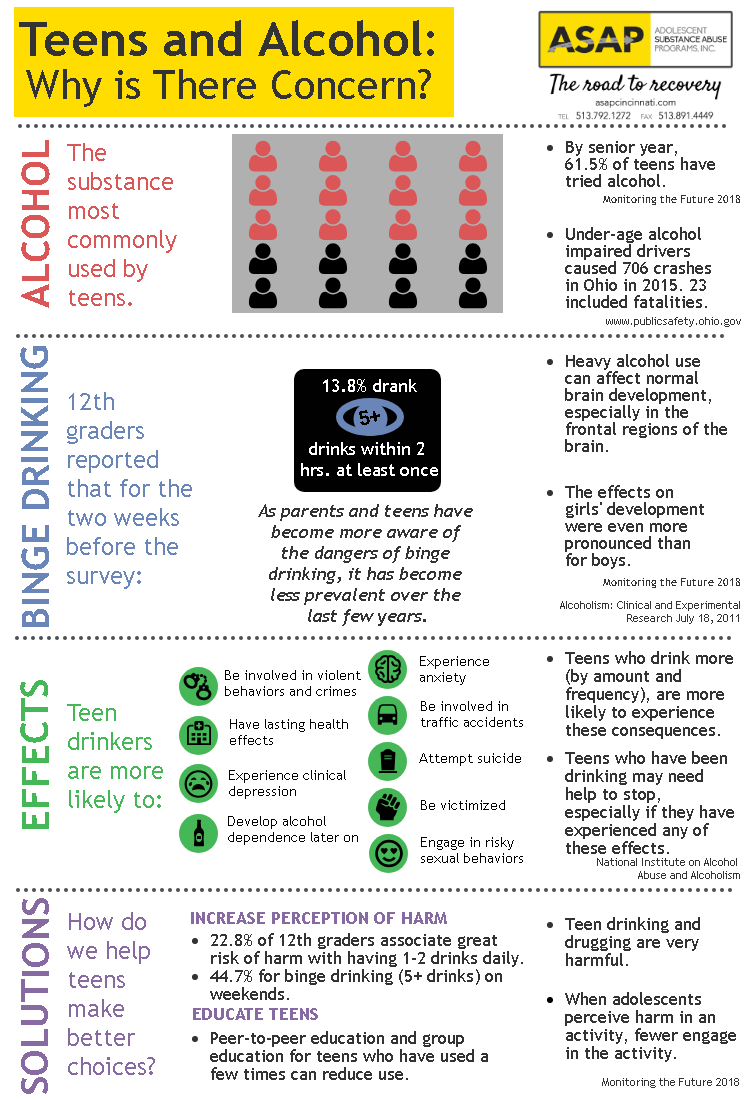
Facts About Alcohol
More than half of teens will try alcohol some time before their 21st birthday. Having facts about alcohol can help you encourage your teen to make healthy choices. When a teen begins having full drinks or crossing other boundaries, it’s time to get help.
The adolescent brain is often compared to a car with a fully operational gas pedal (the reward system) but weak brakes (the prefrontal cortex). Considering this analogy, the effects of alcohol on teens should come as no surprise. Adolescents and alcohol can be a dangerous combination, yet one that is often underappreciated. At times, parents see alcohol use as a ‘right of passage’ for teens. Many do not fully understand risks involved with current problematic drinking patterns. Having facts about alcohol can help you guide your teen to making better decisions.
Alcohol Use is Dangerous for Teens
Alcohol comes in many forms, and most parents and teens view beer as being less harmful than liquor. This inaccuracy leads teens and their parents to make some regrettable decisions.
- The diagnosis of alcohol use disorder during adolescence centers on the inappropriate use and/or increased tolerance to alcohol, withdrawal episodes, and problems managing life issues due to alcohol.
- There may be several possible causal factors including individual, family, genetic, and social factors. While genetics may be a factor, in adolescence, other factors more strongly influence the development of Substance Use Disorders.
- The average age an American girl has her first drink is 13; for a boy, it’s 11 years old.
Underage Drinking Poses Significant Consequences
The conclusion that underage drinking is a serious problem with significant consequences is not an overstatement. Consider:
- Alcohol decreases the ability to focus.
- Teens who drink tend to have difficulties with memory.
- Exposure to alcohol can reduce the size of parts of the brain.
- Abuse of alcohol often leads to use of other substances.
- Males who drink heavily tend to complete fewer years of education.
Parents sometimes have difficulty discouraging teen drinking when they look at their own current social drinking or remember drinking that may have occurred in high school or early college.
Even Occasional Use Can be Risky
Even teens who drink only on the weekends may be ‘binge drinking’. This is the action of consuming five or more drinks within 2 hours for males older than 16, four or more for females older than 16. It can cause teens to pass out, black out, feel sick, miss school, or act out behaviorally. Binge drinkers also face the risk of alcohol poisoning – a severe and potentially fatal reaction to an alcohol overdose.
What Parents Can Do
Gathering facts about alcohol will enable you to have productive conversations with tweens and teens about the dangers posed by using. Clear expectations and parental supervision have been found to moderate alcohol use in the teen years. In addition, participation in extracurricular activities, learning stress coping strategies, counseling for depression and anxiety, and connecting to religious beliefs all successfully counter teenage occasional alcohol use.
Even though your child may be beyond the prevention stage, these techniques are still valuable tools to help in their quest for a better life. These strategies continue to be impactful during sobriety. If you are concerned about your child, give us a call at 513.792.1272 and we can walk you through our intake/assessment process.
